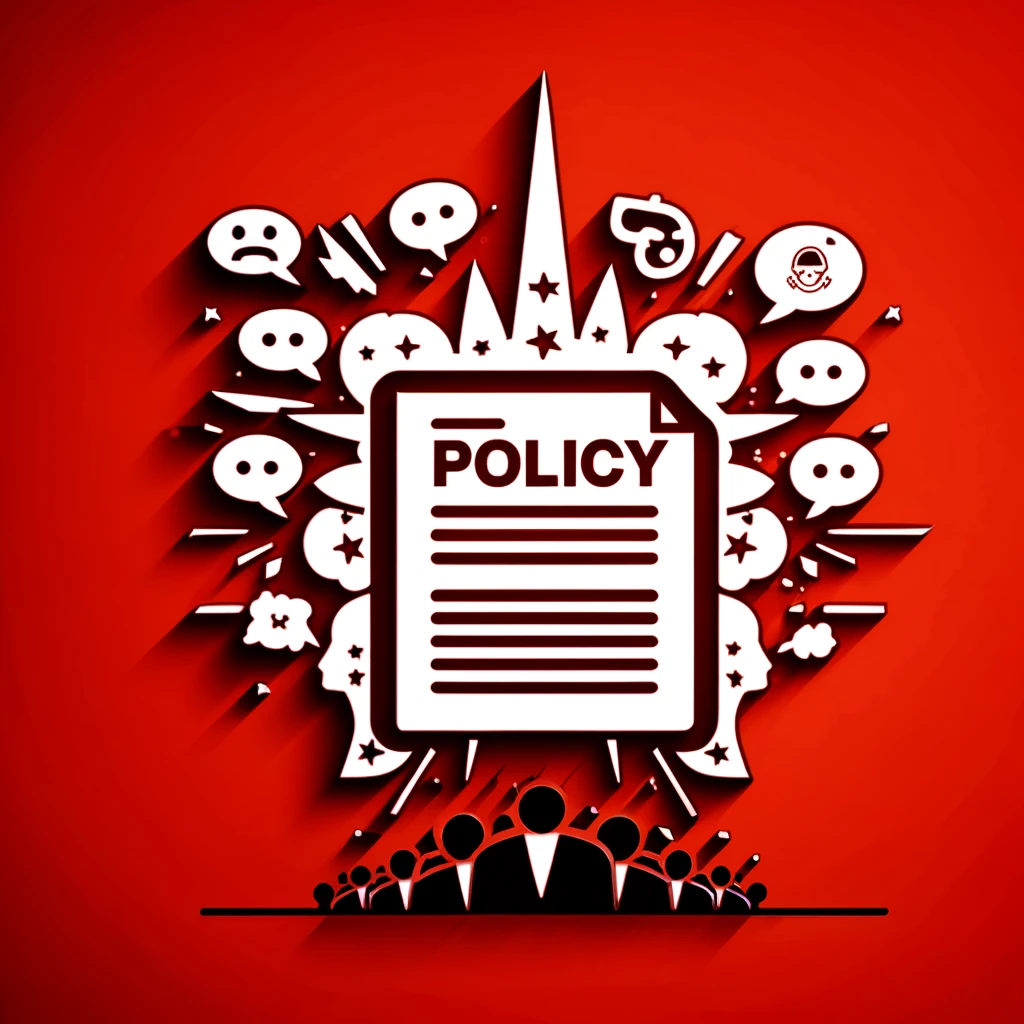Provoke
Definition
Provoke generally means to stimulate or incite someone to react, often in a negative manner.
Parts of Speech
- Verb
Pronunciation
American English
- IPA Pronunciation: /prəˈvoʊk/
- Respelling: pruh-VOHK (with "pruh" as in the beginning of "prune," and "VOHK" as in "oak" with a 'v' sound at the start)
British English
- IPA Pronunciation: /prəˈvəʊk/
- Respelling: pruh-VOHK (similar to American English, with "pruh" as in the beginning of "prune," and "VOHK" as in "oak" with a 'v' sound at the start)
In both dialects, "provoke" is pronounced with the stress on the second syllable, "VOHK." The pronunciation remains consistent across both American and British English, clearly articulating the "pruh" and emphasizing the "VOHK."
Etymology
The word "provoke" is derived from the Latin "provocare," meaning "to call forth" or "challenge." It is a combination of "pro-" meaning "forth" and "vocare" meaning "to call."
Derivatives
- Provoker
- Provoking
- Provocation
- Provocative
- Provokedly
Synonyms
- Incite
- Stimulate
- Instigate
Antonyms
- Soothe
- Calm
- Dissuade
Usage
"Provoke" is typically used in contexts where a person, event, or thing triggers a reaction or response, particularly of a negative or challenging nature.
Related Terms
- Stimulus
- Agitation
- Trigger
- Reaction
- Response
Detailed Definition
Verb
- To stimulate or incite someone to react, especially in an angry or emotional manner.
- Example: His remarks were meant to provoke laughter, but they ended up causing offense.
- To bring about or cause a particular reaction or event.
- Example: The new policy might provoke a backlash from the public.
- To challenge or confront someone, especially in a way that is likely to cause retaliation.
- Example: She loved to provoke her brother by hiding his favorite toys.
provoke



🇨🇳 Mandarin
- 激怒 (to anger someone)
- IPA Pronunciation: /jī nù/
- Respelling in English: jee noo
- 挑衅 (to incite or challenge)
- IPA Pronunciation: /tiǎo xìn/
- Respelling in English: tee-ow shin
🇮🇳 Hindi
- उकसाना (to incite)
- IPA Pronunciation: /ʊk.sɑː.nɑː/
- Respelling in English: uk-sa-na
- भड़काना (to inflame or stir up)
- IPA Pronunciation: /bʱəɽ.kɑː.nɑː/
- Respelling in English: bha-da-ka-na
🇪🇸 Spanish
- Provocar (to incite or stir up emotions)
- IPA Pronunciation: /pɾo.βoˈkaɾ/
- Respelling in English: pro-vo-car
- Incitar (to incite to action)
- IPA Pronunciation: /in.siˈtar/
- Respelling in English: in-cee-tar
🇫🇷 French
- Provoquer (to provoke or challenge)
- IPA Pronunciation: /pʁɔ.vɔ.ke/
- Respelling in English: pro-vo-kay
- Inciter (to incite or encourage)
- IPA Pronunciation: /ɛ̃.si.te/
- Respelling in English: an-see-tay
🇸🇦 Modern Standard Arabic
- استفزاز (to irritate or provoke)
- IPA Pronunciation: /is.tif.zaz/
- Respelling in English: iss-tif-zaz
- تحريض (to incite)
- IPA Pronunciation: /taħ.riːð/
- Respelling in English: tah-reedh
🇧🇩 Bengali
- উত্তেজিত করা (to provoke or agitate)
- IPA Pronunciation: /ut̪.te.d͡ʒit̪ kɔ.ra/
- Respelling in English: ut-te-jit ko-ra
- উসকানি দেওয়া (to incite or instigate)
- IPA Pronunciation: /us.kɑ.ni de.o.wa/
- Respelling in English: us-ka-nee deo-wa
🇷🇺 Russian
- провоцировать (to provoke)
- IPA Pronunciation: /prə.vɐˈt͡sɨ.rɐ.vɐtʲ/
- Respelling in English: pro-vo-tseer-o-vat
- подстрекать (to incite)
- IPA Pronunciation: /pədˈstrʲe.kətʲ/
- Respelling in English: pod-stre-kat
🇵🇹 Portuguese
- Provocar (to provoke)
- IPA Pronunciation: /pɾo.voˈkaɾ/
- Respelling in English: pro-vo-car
- Incitar (to incite)
- IPA Pronunciation: /ĩ.siˈtaɾ/
- Respelling in English: in-see-tar
🇮🇩 Indonesian
- Memicu (to trigger or provoke)
- IPA Pronunciation: /me.mi.t͡ʃu/
- Respelling in English: me-mee-choo
- Menghasut (to incite)
- IPA Pronunciation: /məŋ.ha.sut/
- Respelling in English: meng-ha-soot
🇩🇪 German
- Provozieren (to provoke)
- IPA Pronunciation: /pʁo.voˈt͡siː.ʁən/
- Respelling in English: pro-vo-tsee-ren
- Anstiften (to incite)
- IPA Pronunciation: /ˈan.ʃtɪftən/
- Respelling in English: an-shtif-ten
🇯🇵 Japanese
- 挑発する (to provoke)
- IPA Pronunciation: /tʃoːhaku suru/
- Respelling in English: cho-ha-ku su-ru
- 煽る (to fan or incite)
- IPA Pronunciation: /aoru/
- Respelling in English: a-o-ru
🇻🇳 Vietnamese
- Kích động (to provoke)
- IPA Pronunciation: /kɪk̚˨˩ ɗɔwŋ˧˥/
- Respelling in English: kich dong
- Xúi giục (to incite)
- IPA Pronunciation: /sui˧ˀ˥ zɨ̌k̚˨˩/
- Respelling in English: sui gic
🇰🇷 Korean
- 도발하다 (to provoke)
- IPA Pronunciation: /do.bal.ha.da/
- Respelling in English: do-bal-ha-da
- 선동하다 (to incite)
- IPA Pronunciation: /sʌn.doŋ.ha.da/
- Respelling in English: seon-dong-ha-da
🇹🇷 Turkish
- Kışkırtmak (to provoke)
- IPA Pronunciation: /kɯʃ.kɯɾtˈmak/
- Respelling in English: kish-kurt-mak
- Tahrik etmek (to incite)
- IPA Pronunciation: /tah.rik etˈmek/
- Respelling in English: tah-rik et-mek
🇵🇰 Urdu
- اکسانا (to provoke)
- IPA Pronunciation: /ʊk.sɑː.nɑː/
- Respelling in English: uk-sa-na
- بھڑکانا (to incite)
- IPA Pronunciation: /bʱəɽ.kɑː.nɑː/
- Respelling in English: bha-da-ka-na





